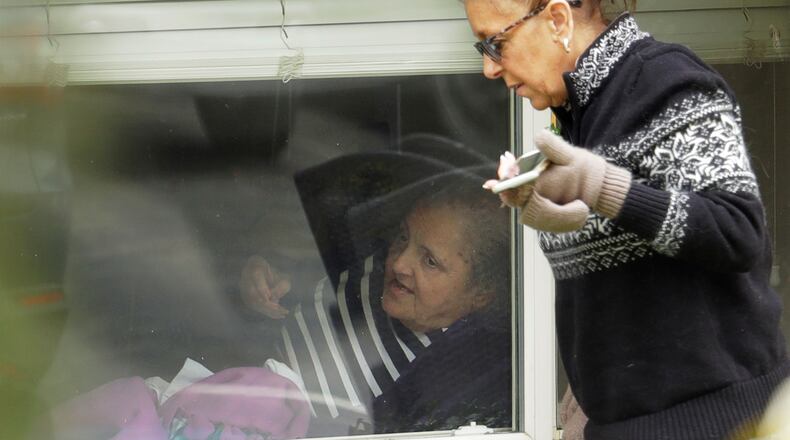MORE: St. Leonard workers among around 400 Ohio long-term care worker cases
In Ohio, assisted living residents can now have limited visits if they are outdoors and abide by other conditions. Ohio nursing home residents can start limited outdoor visits July 20.
Twenty-six states expanded these restrictions to their assisted living settings, while 21 states recommended no visitors in assisted living. These policies placed residents in almost every long-term care setting in social isolation.
Researchers at Miami University’s Scripps Gerontology Center recently conducted an online survey to find out how families and residents are staying in touch, and how families feel about new ways of communicating with the facility and the residents.
As of June 19, nearly 200 family members and friends of residents in long-term care settings across 21 states responded to the survey.
Dr. Jane Straker, Scripps Director of Research, and Dr. Mi Sun Choi, Scripps research associate, found that despite this difficult situation, most survey respondents had positive perceptions about the facilities.
However, they reported families’ perceptions varied depending on the situations related to their communication with the facility and with their family member.
MORE: COVID-19 testing for long-term care still lacking
Facility staff played a key role in managing communication between residents and families, and in providing information and updates about life in the facility. Despite widespread attention given to technology such as FaceTime and Zoom, less than 10% of residents could use those tools without assistance. There were families who reported to the researchers that they have been unable to communicate with residents because of the residents’ physical or cognitive impairments.
“While it might be expected that families would have more negative perceptions of a facility if it had COVID-19 cases, that wasn’t the case,” the report stated. “Surprisingly, the research team found that respondents who had the least peace of mind about resident care and who were least likely to recommend the facility were families who didn’t know whether or not there were positive COVID-19 cases in the facility.”
Some families said they have received no communication from the facility at all.
“Our findings show that families are more likely to feel that they’re getting the right information when they are given regular reports from the facility, rather than only receiving information when issues occur,” Straker said.
Families were also more positive about the information they received when they heard details about the resident’s quality of life, such as their mood, or how they were spending their time.
PREVIOUS COVERAGE: Ohio National Guard to help with nursing home coronavirus testing
Many families expressed concerns about depression, increased confusion and physical declines among the residents, while others expressed appreciation for the facility where their family member lives. Several questioned whether the costs of isolation might be more harmful than the risk of the COVID-19 virus.
The researchers suggest that when in-person visits are prohibited or limited, families need regular, transparent communication. The findings of this study show that trust in the care being given by a facility increases with the frequency, amount, and type of information families receive.
How to contact the Long Term Care Ombudsman
Have a question or concern? Or want to get involved volunteering as a resident advocate? Call your local Long Term Care Ombudsman’s office, which is an independent advocate for long-term care residents and families.
The Dayton-area ombudsman's office — serving Montgomery, Preble, Greene, Clark, Miami, Darke, Logan, Shelby, and Champaign counties — can be reached at 1-800-395-8267 or ombudsman@dayton-ombudsman.org.
About the Author
